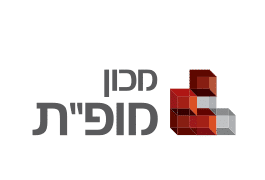Bridging cultures through technology
About NEAR
NEAR is a nonprofit educational organization that was established in memory of Nir Diskin, who died when he was only 30 after a long battle with cancer. Nir wholeheartedly believed in social justice, and was passionate about promoting ideals of tolerance and acceptance of the other. NEAR strives to realize his vision through education – to create a better world, a world in which there is mutual respect and understanding between people of different cultures.
NEAR was established by the Diskin family and the three founders and directors of TEC Center: Dr. Miri Shonfeld from Kibbutzim College of Education, Dr. Elaine Hoter from Talpiot College Education, and Dr. Asmaa N. Ganayem from Al-Qasemi Academic College of Education.
Our Vision
Fostering mutual respect and social acceptance of the other
Goal: Bringing people together and promoting tolerance
In the Israeli education system in its current format, there is almost total segregation between different population sectors. Some children attend state schools, others attend state-religious schools, while Muslim, Christian, Bedouin, and Druze children attend separate schools, and rarely have an opportunity to interact with one another during their regular school activities. NEAR has developed an innovative educational method, wherein pupils from different cultures in Israel learn collaboratively and get to know one another. The aim is to prevent prejudice and build bridges between the different cultures for future generations in Israeli society. The program is designed for boys and girls aged 10-12, and utilizes innovative technologies to overcome language barriers and geographical distances, forge lasting interpersonal connections, and promote a dialogue based on mutual respect.
NEAR’s Method: Gradual Acquaintance
The method implemented in the program is well-tested, unique, and innovative, whereby the children get to know one another gradually, while performing educational tasks on an online platform. During the school year, groups of pupils from different population sectors collaborate to attain joint goals. The program consists of progressive stages, in each of which the groups of pupils perform various assignments, first working with text, then image, audio, and finally video. At the end of the school year, after the pupils have become acquainted with each other in the program’s various interactive digital activities, they meet face to face.
Proven Success: Building Trust
The NEAR method has been successfully implemented for over ten years, and has achieved excellent results.
More than 13,000 pupils and 400 teachers have already participated in the program. Research indicates that the pupils displayed tolerance towards children from different cultures.
The NEAR method has also been recognized by the Ministry of Education, and in 2018, President Reuven (Ruvi) Rivlin presented The Jerusalem Unity Prize to Dr. Miri Shonfeld, Dr. Elaine Hoter, and Dr. Asmaa N. Ganayem, and NEAR Educational Organization. The prize committee described the NEAR method as “an innovative model for forming relationships between different sectors and creating constructive dialogue among thousands of participants. Nearly 3,000 students, 13,000 children and 400 teachers have participated in the program to this day. Studies held, indicate that participants’ experiences on the program have led to significant decline in negative opinions towards other cultures and to an increase in tolerance towards the other”.
The NEAR Social-Educational Network
NEAR is developing, in conjunction with Kibbutzim College of Education, an innovative social-educational network titled NEAR. It is the only social-educational network in the world devoted to learning, and continues to be developed by the Jewish ultra-Orthodox software development company RavTech.
The network’s specifications and features are designed to support and promote collaborative multicultural learning in accordance with the TEC Model. Thus, it also facilities multicultural communication. For example, each pupil types in their mother tongue, Hebrew or Arabic, and the text is automatically displayed in both languages. The system recognizes the user’s mother tongue, and displays relevant content.
Join Us
Join us in realizing our vision:
With your support, we can build bridges to a more accepting, more beautiful world!

